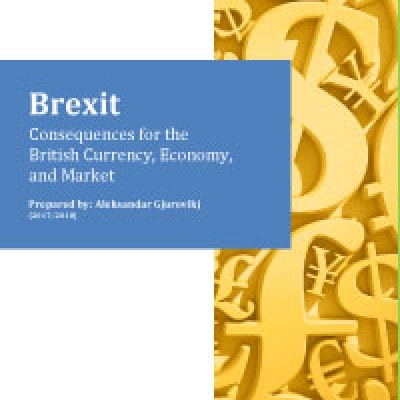The United Kingdom referendum decision to leave the European Union on June 23rd, 2016 resulted into serious short-term and mid-term economic consequences. BREIXT had an immediate effect on the British pound which depreciated for 15 % against other global currencies. The pound was less desired by investors throughout the world because of the uncertainty of the British political future.
The depreciation caused immediate inflation raising consumer prices, while it did not have a positive impact on British exports due to the dominance of non-manufacturing services in the export structure. Not only did the demand for British services not grow despite the cheaper pound, it even declined further as the political risks associated with the loss of the privileged access to the EU Single market, caused a decrease in demand for British products and services causing a decline in GDP growth.
As Brexit has yet to happen and there are many “ifs”, it is difficult to predict its impact on the British pound and economy on a long term base.
The analysis can be found at the following link
 English (UK)
English (UK)  Македонски
Македонски 


